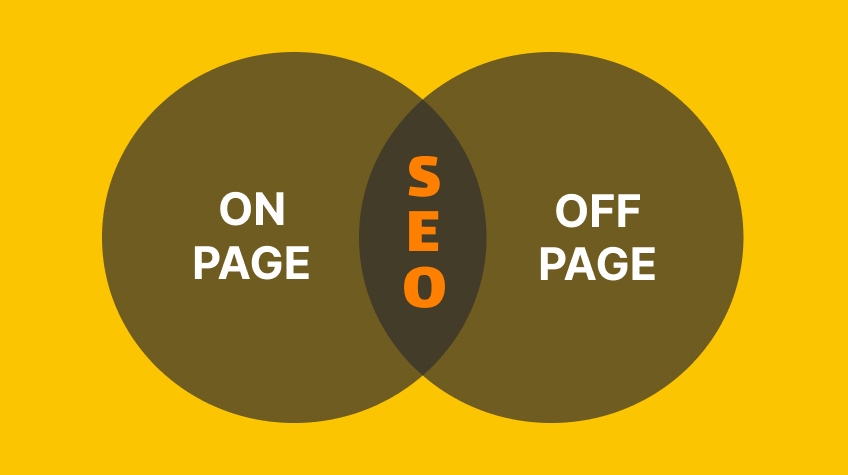
On-page SEO refers to things you can do on a webpage to improve its search engine rankings. While off-page SEO refers to things you can do outside your website to improve its search engine rankings. Generally, on-page SEO makes your content better for users and search engines. It may involve: Writing unique titles for your pages Adding links between pages on your site Optimizing images on your site Off-page SEO is mainly about improving your website’s reputation. It may involve: Getting other websites to link to your site Promoting your brand on social media Managing your reviews on external platforms
On- and off-page SEO help you get more organic (unpaid) visibility in relevant search engine results pages (SERPs). To attract more high-quality traffic to your website/location. Google considers both on-page and off-page factors when ranking search results. So, you typically need to balance on-page and off-page SEO if you want to rank prominently.
Generally, you should focus on on-page SEO before off-page SEO. Why? Because on-page SEO helps Google understand your pages. And ensures users have a great experience on your website. So, it’s foundational to your success. Plus, you have control over your on-page SEO efforts. Since it involves making direct changes to your website. Off-page SEO is less straightforward. And it can be harder to get results because you’re often relying on other people to endorse your website. But all else being equal, Google will likely rank the website with the better reputation over one with a worse reputation. So, off-page SEO may be necessary for gaining (and maintaining) a competitive edge.
So, make sure these summaries appeal to your target audience and compel them to click. And keep them to around 105 characters to reduce the risk of your text being truncated.